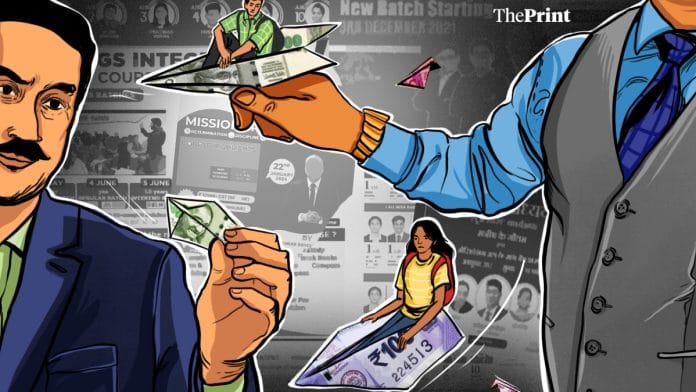New Delhi: When Manish Taneja pulled his daughter out of Allen Career Institute, he assumed getting a partial refund would be straightforward. After all, she’d only attended the NEET coaching classes for a couple of months. Instead, the institute flatly refused to return the Rs 1.46 lakh he had paid as one year’s fee for a three-year course.
“The institute said their policy doesn’t allow refunds. They only consider refunds if you withdraw within a month of admission,” said Taneja, who works in an IT company. For four months, he and his wife Shilpi have been running from pillar to post. Even quoting government rules that mandate pro-rata refunds hasn’t worked. He is now preparing to send a legal notice to the institute.
India’s Rs 58,000 crore coaching industry often runs on its own fine print, even if it’s at odds with government orders. Last year, the Ministry of Education issued guidelines to regulate this sector and protect students and parents. Among these was a clear instruction: fees should be refunded on a pro rata basis— proportionally, based on time attended. But across the board, from Allen to Physics Wallah to Drishti IAS, coaching institutes ignore the rules and continue to follow their own refund policies. Students who drop out, usually due to dissatisfaction with courses, are forced to pay full price. Many end up deferring their study plans as well.
Complaints against coaching institutes have seen a sharp rise in recent years. The National Consumer Helpline received 16,276 complaints about coaching centres in 2023-24, and most were about refunds. By February 2025, the Consumer Affairs Ministry had helped more than 600 students recover Rs 1.56 crore in total. Consumer forums and courts have also, in various rulings, asked institutes to return fees in individual cases. But oversight is still weak and most parents eat the cost rather than take on well-lawyered coaching chains.
Coaching institutes often try to fool parents by claiming that a seat, once vacated, goes waste for years. But that’s simply not how these businesses operate. Their business model is built to absorb dropouts without any financial loss. Refusing refunds is not about managing logistics — it’s about profiteering
-Keshav Aggarwal, president of the Coaching Federation of India
Industry insiders say the problem is more pronounced in bigger coaching companies.
“The big institutes take parents’ signatures on their ‘no-refund’ policy documents during admission. But courts have repeatedly ruled that such policies can’t override consumer rights,” said Keshav Aggarwal, president of the Coaching Federation of India (CFI), a consortium of coaching institutes.
“In every batch, at least 10 per cent of students drop out for different reasons — lack of interest, family situations, health issues. But refunds are never given. These companies have large legal teams to handle such battles, and parents often get intimidated by the thought of going to court.”
ThePrint emailed queries to Allen and Physics Wallah about their refund policies and alleged non-compliance with government directives. This report will be updated if a response is received.
Also Read: India’s coaching institutes are having a meltdown. Teachers, students dropping out
Back and forth for refund
A week into her NEET course at Allen, 15-year-old Deveshi Taneja told her parents something didn’t feel right.
“We thought it was just a matter of settling in,” her father Manish recalled. She ended up taking about 45 classes but was often in tears, dreading each day. That’s when the family decided to withdraw her and immediately hit a wall.
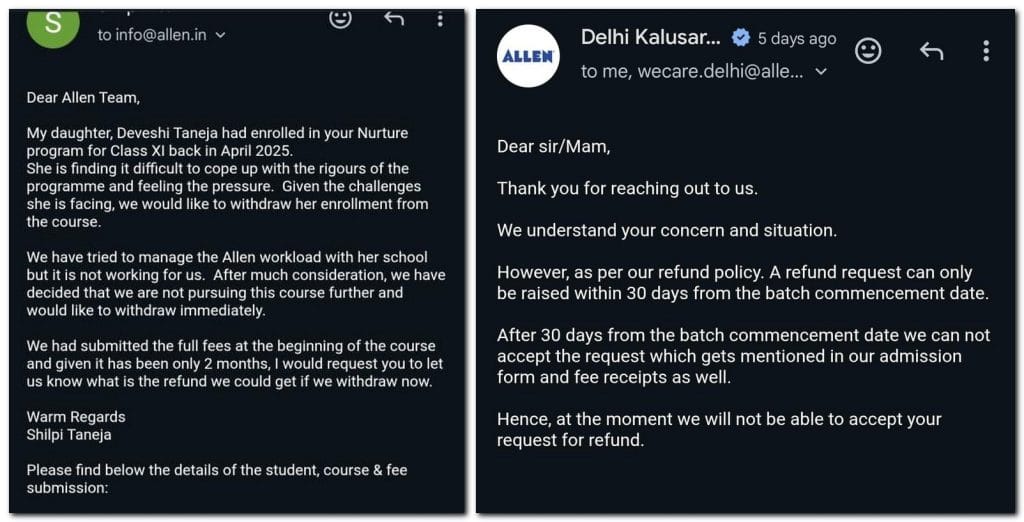
Over four months, the Tanejas tried everything. They sent multiple emails, visited the centre, even forwarded court orders showing that institutes had been directed to give refunds. But the email trail shows that reasoning with the institute got them nowhere.
“We have tried to manage the Allen workload with our daughter’s school, but it’s not working out for us. We have decided that we will be withdrawing her enrollment. We had submitted the full fees at the beginning of the course and it’s just been two months, so we would like to request for the refund,” said Taneja in his first email to the institute’s official address.
The reply was a curt no-can-do.
“After 30 days from the batch commencement date, we cannot accept the request, which gets mentioned in our admission form and fee receipts as well,” it read.
After weeks of back-and-forth, the family warned that the refusal to refund violated the Consumer Protection Act 2019 and that they would take legal action.
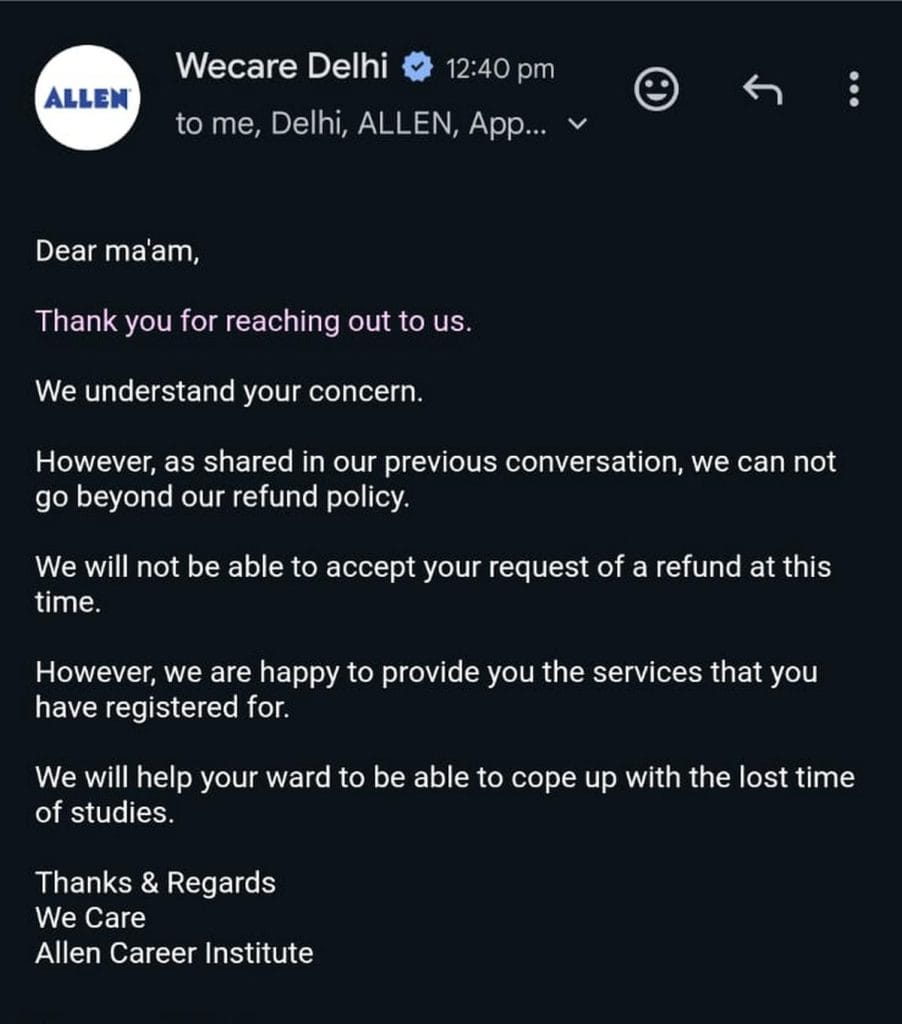
“I feel that your current refund policy is one-sided and detrimental to the students who pay the full fee upfront. I have discussed this with our legal team and we can take our concern to a consumer court,” said an email from Shilpi Taneja. They received no reply after that. The family now plans to pursue the matter in court. For now, they’ve decided not to enrol their daughter in any coaching.
I have worked at many coaching institutes but no one returns the money. That’s how they get the business going
-Mahinder Kumar, physics teacher
Data from the Consumer Affairs Ministry show that complaints about denied refunds come from all over India — from Rajasthan to Tamil Nadu and from Chhattisgarh to Gujarat.
In Lucknow, 16-year-old Mohd Irfan enrolled for NEET coaching at Allen in April 2024 but grew unhappy with the teaching quality and syllabus coverage. Three months in, he decided to withdraw. But when he asked for a refund of the Rs 1,21,000 he had paid in three instalments, the response was the same: the refund window had passed.
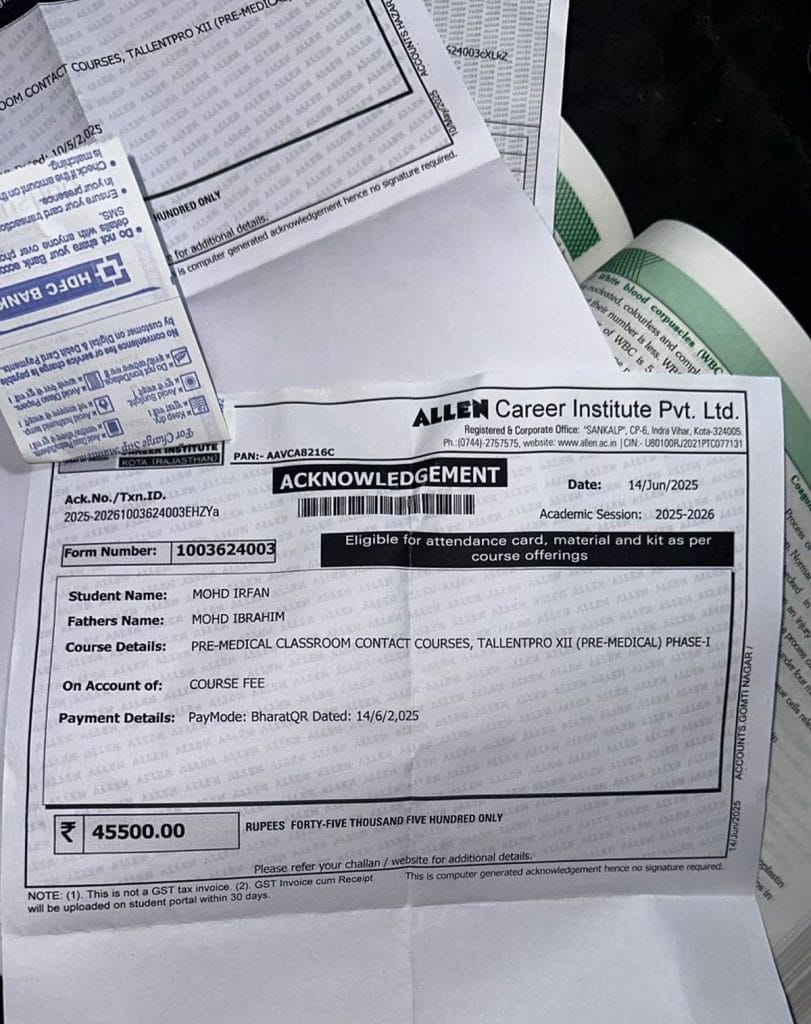
Irfan too invoked the law in an e-mail to the institute.
“Institutional policies cannot override a student’s statutory rights under Indian law. As per Section 2(11) of the Consumer Protection Act, 2019, any deficiency in service, including inadequate academic delivery or deviation from promised standards, entitles the consumer to seek a refund or appropriate redressal,” he wrote. He added that the quality of classes did not match what was assured during enrollment and thus the refund request was “both legally valid and ethically reasonable”.
He too received no refund and has since put his NEET plans on hold.
Such issues span a gamut of coaching institutes. For 18-year-old Delhi resident Supriya Shikha, the battle was with Physics Wallah. However, she chose not to take on the Goliath in court after dropping out of its online NEET course in 2024, absorbing a loss of Rs 20,000.
Most coaching institutes publish their refund policies on their websites and include these terms in forms signed by parents at the time of admission. These terms specify that no refund will be issued usually with strict deadlines and no mention of pro-rata clauses after a certain period of time.
“That’s totally illegal and unethical; they are not supposed to do that. If the government instructs you to refund the amount on a pro-rata basis, then why don’t they do that?” asked Aggarwal.
Justifications that don’t stand up
Coaching institutes often defend their strict no-refund policies by arguing that once a student drops out, their seat goes vacant — sometimes for the entire year, or even the full duration of a multi-year course. But consumer courts don’t always buy that argument.
In one 2022 case in Chandigarh, the District Consumer Disputes Redressal Commission rejected FIITJEE’s claim that a vacated seat could not be filled and therefore no refund was due.
The court ruled that educational services are a consumer good, not real estate, and that charging for unused classes amounted to “deficiency in service” and an “unfair trade practice”, FIITJEE was ordered to refund Rs 1.28 lakh, after deducting only a modest registration fee.

The court noted that parents have little choice but to sign enrolment forms “printed in very small letters”, with one-sided clauses that leave students and families no real protection.
“Coaching institutes often try to fool parents by claiming that a seat, once vacated, goes waste for years. But that’s simply not how these businesses operate,” said CFI’s Aggarwal. “In reality, these institutes overbook batches, run parallel ones, and rarely maintain strict batch sizes. Their business model is built to absorb dropouts without any financial loss. Refusing refunds is not about managing logistics — it’s about profiteering.”
Mahinder Kumar, who has taught at Physics Wallah, FIITJEE, Allen and Vidya Mandir, says refund requests come up in every batch, but very few institutes follow a pro-rata policy.
“I have worked at many coaching institutes but no one returns the money. That’s how they get the business going,” said Kumar, who teaches physics.
They make big PR videos in which they go to poor children’s homes and sponsor their education. Yet they don’t refund the money according to the government guidelines
Supriya Shikha, NEET student who was unable to get a refund
One of the rare exceptions is Vidya Mandir, which offers coaching for NEET and JEE. In most cases, it returns part of the fees after deducting charges for the classes already attended.
“Vidya Mandir gives the refund if the issue is medical or related to stream change or transfer. I don’t think any other institute follows these practices,” said Jitender Kumar, a physics teacher at Vidya Mandir.
In January 2024, the Ministry of Education issued comprehensive guidelines aimed at bringing transparency and accountability to India’s booming coaching-centre sector. Key provisions included a ban on enrolling students below 16 or those who haven’t completed secondary exams, a curb on misleading promises like guaranteed ranks, and mandatory disclosure of course details, faculty credentials, infrastructure, refund terms and easy-exit policies—all to be published clearly on institute websites and brochures.
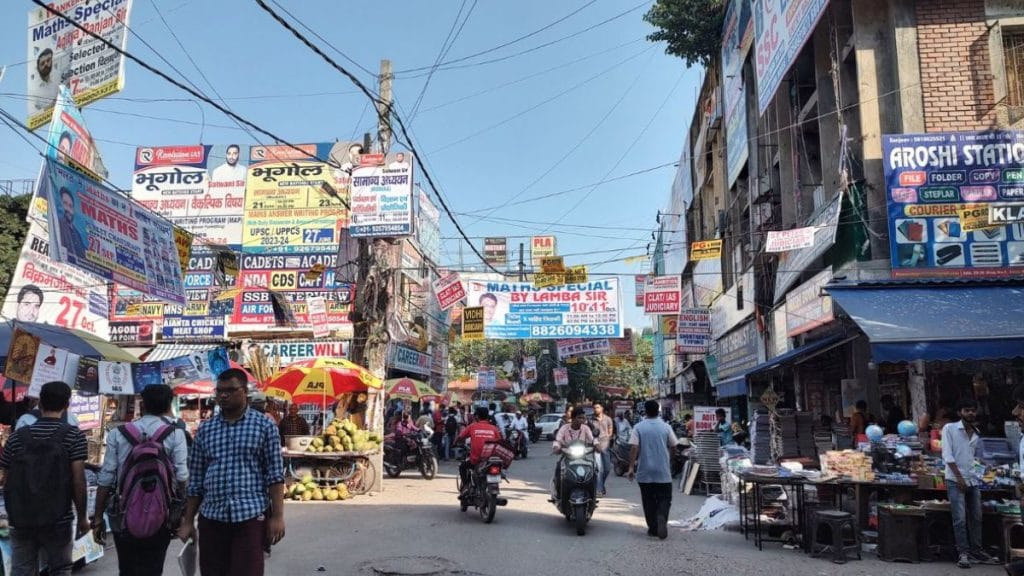
After more than 600 aspirants from civil services, engineering and other courses claimed refunds through the National Consumer Helpline this year, the Ministry of Consumer Affairs reiterated that “the unjust practice of denying legitimate refund claims will no longer be tolerated” and that institutes must uphold consumer rights.
But experts say the problem isn’t rules but enforcement. Until refund norms become legally binding and not just advisory, students will remain at the mercy of private coaching chains.
“India’s coaching economy thrives in absence of policy. Despite guidelines, there’s no enforcement mechanism. These centres treat students like consumers but without offering consumer protection,” said Keshav Aggarwal.
Back in Delhi, Supriya Shikha is still bitter about the lost money, which her single mother scraped together from savings and a small loan.
“They make big PR videos in which they go to poor children’s homes and sponsor their education,” she said. “Yet they don’t refund the money according to the government guidelines.”
(Edited by Asavari Singh)



